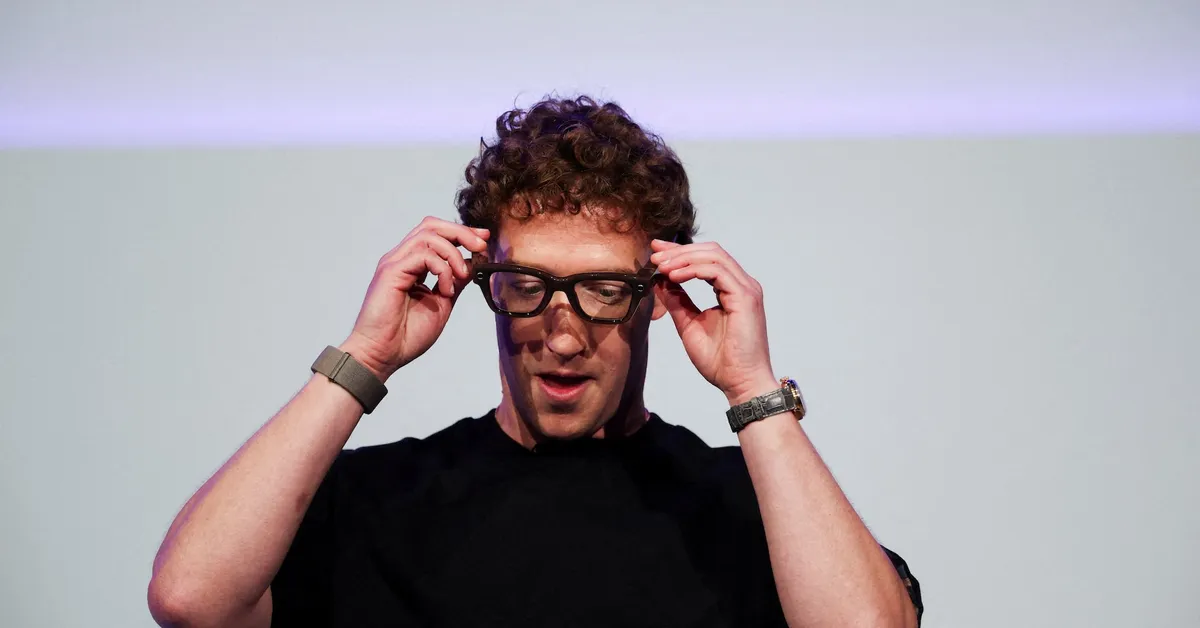
At the recent Meta Connect event, CEO Mark Zuckerberg showcased the highly anticipated Meta Ray-Ban Display smart glasses, alongside a new wristband controller. Despite some technical difficulties during the demonstration, the product received enthusiastic applause from the audience. This event marks a significant moment for Meta as it aims to redefine personal technology with its latest offerings.
Meta's journey into the world of smart glasses has been met with success, and Zuckerberg expressed his belief that these glasses are a crucial step toward realizing the AI promise of superintelligence. He stated, "Glasses are the ideal form factor for personal superintelligence, because they let you stay present in the moment while accessing AI capabilities that enhance your cognitive functions, communication skills, and sensory experiences."
The new Display glasses feature a small digital display embedded in the right lens, designed for basic tasks, including notifications and other essential updates. Priced at $799, these glasses will be available in stores starting September 30. A notable aspect of this launch is the inclusion of a wristband that translates hand gestures into commands, allowing users to respond to texts and calls seamlessly.
This launch is part of Meta's broader strategy to catch up in the competitive AI landscape. Zuckerberg has initiated a talent acquisition drive in Silicon Valley, aiming to recruit top engineers from rival companies, and has committed to investing tens of billions of dollars in advanced AI chip technology. This aggressive strategy is essential as Meta faces challenges, including scrutiny over child safety on its social media platforms.
In addition to the Meta Ray-Ban Display, the company also introduced a new pair of Oakley-branded glasses called Vanguard, specifically designed for athletes. Priced at $499, these glasses integrate with popular fitness platforms like Garmin and Strava, providing real-time training statistics and post-workout summaries. With a battery life of nine hours, these glasses are set to hit the market on October 21.
Furthermore, Meta has updated its previous Ray-Ban line, enhancing the battery life to nearly double that of earlier models and improving the camera quality, now priced at $379, up from the previous generation's $299.
While analysts are cautious about the immediate sales prospects of the Display glasses, many view this as a crucial step towards the anticipated launch of Meta's Orion glasses in 2027. A prototype of the Orion glasses was unveiled last year, with Zuckerberg describing it as a "time machine to the future." Forrester analyst Mike Proulx compared the Display's debut to Apple's introduction of the smartwatch, suggesting that glasses could become a non-intrusive, everyday technology.
However, Proulx emphasized that Meta must prove the value of these glasses to consumers. He noted, "There's a lot of runway to earn market share, but convincing users of the benefits will be essential." All devices feature existing capabilities, including Meta's AI assistant, cameras, hands-free control, and livestreaming functionalities to platforms like Facebook and Instagram.
During the live demonstration, not all went smoothly for Zuckerberg; a call made through the Display glasses failed, prompting him to humorously remark, "I keep on messing this up." The audience responded positively, cheering in support. IDC’s Jitesh Ubrani commented on the value of the Display glasses, stating, "It's great value for the tech you're getting," but acknowledged that the software needs further development to appeal to the average consumer.
As Meta navigates the complexities of launching innovative products amidst scrutiny and competition, the success of the Meta Ray-Ban Display could play a pivotal role in shaping the company's future in the burgeoning smart glasses market.